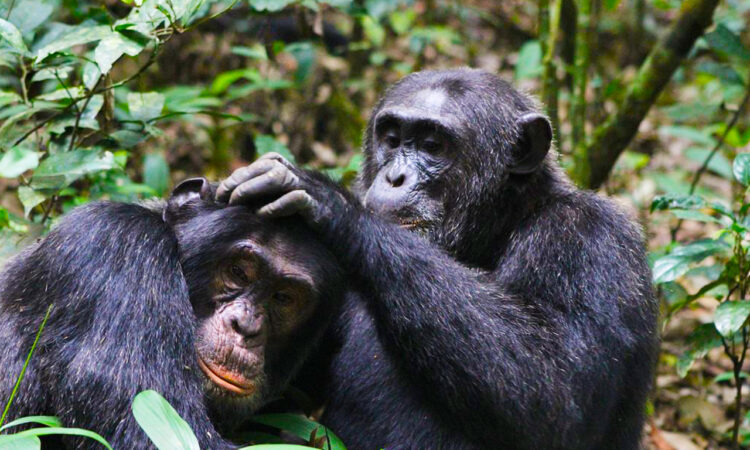Are chimpanzees dangerous?
Are chimpanzees dangerous?: Do chimpanzees pose a threat? Yes and no! Unless provoked out of their comfort or tranquility, chimpanzees are not known to be deadly animals. It is possible to hike chimpanzees because, like mountain gorillas, they are gentle creatures that do not frighten people away. You can spend an hour with a chimpanzee and they won’t mind you at all. After an hour, you start to annoy them and they might get upset with you, but even then, they will leave you without attacking you or doing you any harm.

Chimpanzees are therefore not a threat. Even though chimpanzees aren’t thought to be dangerous, you should be aware that they will fight you fiercely and may kill you if you threaten or assault them in any manner. To weaken you, they will bite you with their teeth and fangs. They will also wrestle, kick, stomp, and drag you around until they believe you are no longer able to hurt them or in any way.
This implies that you need exercise caution when traveling with mountain gorillas to avoid doing anything that could enrage or even threaten the chimps.
It is also recommended that you always follow the laws and regulations of the chimpanzee trekking trip in order to preserve the chimpanzees’ protection.
Chimpanzee trekking regulations and procedures include:
Keeping a distance of seven meters from chimpanzees
When photographing the chimpanzees, avoid using flash.
Avoid any actions that can endanger the chimpanzees.
The chimpanzees should not be touched.
The chimpanzees should not be fed.
Keep the chimpanzees’ habitat clean.
Remain with your trekking group and avoid trekking when you’re sick.
Observe any trekking instructions that the instructors have given you.
You should adhere to these and numerous more rules when walking with chimpanzees.
While there are chimpanzee habitats throughout Uganda, the majority of chimpanzee trekking encounters occur in Kibale National Park. Chimpanzee trekking activities in Rwanda are conducted in Nyungwe National Park. Although there are more hikers during the dry seasons than during the wet ones, trekking adventures are conducted throughout the year.
After receiving a briefing at the park headquarters, you will spend two to three hours searching for chimpanzees in the forest on the day of the hike. After locating them, you will spend an hour with them before making your way out of the forest. Chimpanzee trekking is typically done from 7 a.m. to 12 p.m., but in recent years, afternoon treks have grown in popularity. These treks begin at 2 p.m. and finish at approximately 5 p.m., so begin as early as 1 p.m.
Each country has a distinct price for various trekking activities, such as trekking with mountain gorillas. Chimpanzee trekking costs in Rwanda are USD 90 for visitors and USD 60 for locals, while in Uganda they are USD 120 for foreign visitors, USD 110 for foreign residents, and USD 80 for citizens and East Africans.
Chimpanzee trekking permits can be obtained even on the day of the hike, in contrast to mountain gorilla trekking, which requires reservations at least one or three months in advance. In addition, chimpanzee trekking allows groups of up to 12 individuals, making it more accommodating than mountain gorilla trekking, which has a cap of 8.



